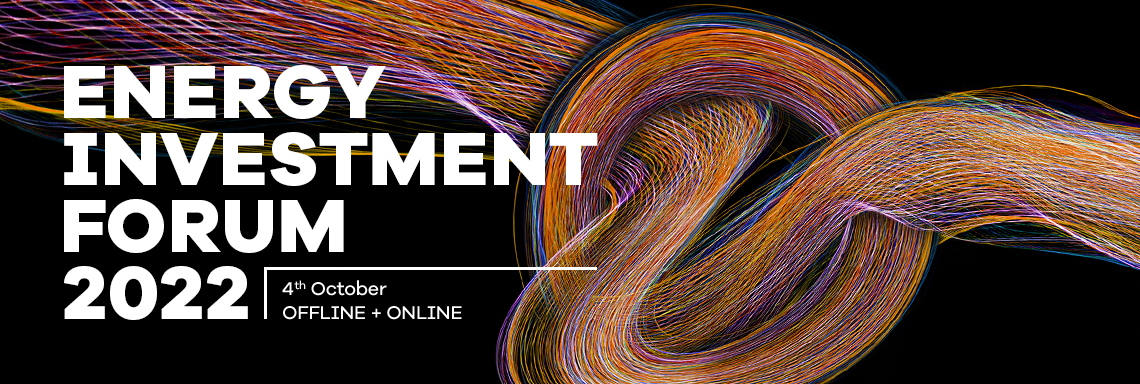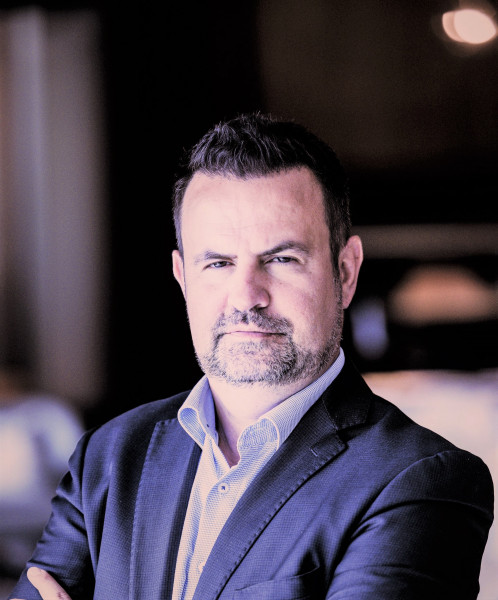



The Russian-Ukrainian war fundamentally affects the energy policy prospect of the EU, including Hungary, and cutting Russian fossil energy import has become necessary not only for climate but security policy reasons while Europe is facing an energy crisis. Countries and companies have to decide in this situation whether it is better to wait and see if energy prices drop while maintaining energy security or solve more problems at once with drastic steps and serious investments – reduce Russian fossil energy imports as soon and as much as possible while shifting to renewable energy, green sources that are also desirable from the point of view of carbon neutrality. The stakes are high, and the system is much more vulnerable than we thought...
08:30 - 08:40
08:40 - 09:00
EU regulation in service of crisis management (REPowerEU): plans and reality, short- and long-term measures
Speaker: Mónika Zsigri, Head of Unit for the Energy TaskForce Unit dealing with “Global Demand and international Negotiations”, DG ENER, European Commission
09:00 - 09:25
09:25 - 09:45
Security of supply aspects of decarbonisation efforts
Speaker: Péter János Horváth, President, Hungarian Energy and Public Utility Regulatory Authority (HEA)
09:45 - 10:00
Fuel market and transport in the focus
Speaker: dr. György Bacsa, a MOL Magyarország ügyvezető igazgatója, a MOL-csoport Stratégiai Operáció és Üzletfejlesztés ügyvezető igazgatója
10:00 - 10:15
The future of sustainable electricity production
Speaker: Dr. Csaba Kiss, Deputy CEO, CTO and CNO, MVM Zrt.
10:15 - 10:30
10:30 - 11:00
Coffee break & Networking
Regulation in the big energy shift – how is it done in practice, and what do we have to pay attention to during the switch so that the security of supply is not damaged? The spread of renewables is also increasing the demand for balancing solutions, which further increases the need for stability in the electricity system. Divestment from Russian energy sources also revived the need to increase domestic production, in addition to the extension of Paks’ operating time. In the meantime, the war is prolonged, raising question marks regarding the continuity of the Russian gas supply. Domestic policymakers, producers, consumers, and traders must take into account all these aspects at the same time.
11:00 - 11:15
Possibilities and challenges ahead of E.ON Hungária Csoport
Speaker: dr. Guntram Würzberg, elnök-vezérigazgató, E.ON Hungária Zrt.
11:15 - 11:30
The practical limits of realising climate goals in the electricity sector – The challenges of the system integration of renewables
Speaker: Pál Ságvári, elnökhelyettes, Magyar Energetikai és Közmű-szabályozási Hivatal
11:30 - 11:45
11:45 - 12:45
Leaders’ panel
Moderator: Géza Losonczy, Associate Partner, Head of Energy & Utility Advisory Services, KPMG
Conversation participants:
12:45 - 13:45
Lunch break & Networking
A perfect storm passed in 2021 on EU energy markets, and it is far from its end. After last year’s sustained increase, with the outbreak of the war, energy prices jumped even higher, resulting in a six to seven-fold increase in one year, accompanied by a five-fold increase in electricity prices and a four-fold increase in carbon quota prices. This means an unsustainably enormous cost pressure for countries and companies, forcing every player to seek a way out. But which are the realistic possibilities for reducing energy dependency and increasing the use of clean energy? Renewable energy sources, energy storage, energy efficiency, decarbonisation (countervailing market), hydrogen economy – how and to what extent can the different directions help?
13:45 - 14:00
Energy efficiency as the key to energy transition
Speaker: Pál Kovács, Vice President, Hungarian Energy And Public Utility Regulatory Authority (MEKH)
14:00 - 14:15
Business competitiveness in the context of high energy prices, alternative energy strategies (own production, energy storage, aggregators and energy communities)
Speaker: ifj. Attila Chikán, elnök, vezérigazgató, BCSDH, ALTEO Nyrt.
14:15 - 14:30
Decentralised and innovative power generation solutions with respect to the EU and national regulations
Speaker: Dr. Balázs Sepsey, Partner, Attorney-at-law, Kinstellar Budapest
14:30 - 14:45
Energy aspects and limitations of green hydrogen production in Hungary
Speaker: László Pintér, Innovation Director, OPUS TIGÁZ Zrt.
14:45 - 14:50
Előadás
Speaker: Dr. Csaba Nemes, Head of Sustainable Development Department, Hungarian Energy and Public Utility Regulatory Authority
14:50 - 15:35
Panel discussion: Mid- and long-term plans to increase energy efficiency – Ideas, solutions, practical advice
Moderator: Attila Weinhardt, Analyst, Portfolio
Conversation participants:
15:35 - 15:55
Coffee break & Networking
The soaring energy prices and new supply security aspects have turned corporate energy procurement upside down. Everyone is looking for a solution to decrease vulnerability, be it renegotiating their contract, dealing with increasingly complicated commerce constructions, or introducing new energy efficiency technologies. Who decides based on what, and how do energy’s consumer, producer, and trader sides collaborate?
15:55 - 16:05
16:05 - 16:20
Pozition of national industry during the crutial energy market situation
Speaker: Dr Zoltán Nagy, President, Hungarian Industrial Energy Consumers’ Association (IEF)
16:20 - 17:00
Panel discussion: About energy procurement during crisis – company and trading experiences. What do the supply and demand sides say?
Moderator: Balázs Felsmann, senior research associate, Regional Centre for Energy Policy Research, Chairman of the Hungarian Energy Traders’ Association
Conversation participants:
17:00 - 17:05
Closing remarks
Be our guests for a glass of champagne after the program, and don't miss the opportunity to network with the participants and speakers!
Main professional partner
Main strategic partner
Gold Sponsor
Silver Sponsor
Silver/Expert Sponsor
Bronze+ Sponsor
Bronze Sponsor
Onsite promotional partner
Carbon Offsetting Partner
Media Partner
Organisation, general questions

Sponsorship


Program

